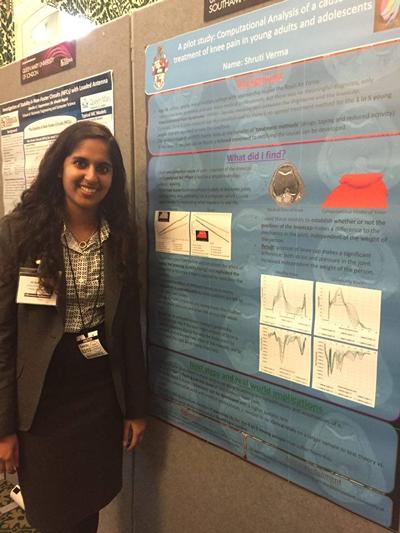Spreading the word to MPs about biomedical engineering

Engineering graduate Shruti Verma has been talking about her undergraduate research in biomedical engineering to MPs and policymakers at Westminster. She won through to represent the University of Southampton at the Posters in Parliament event by impressing the judges at a poster showcase, competing with students from all Faculties.
“It’s important to be able to communicate your research to a wider audience,” she says. “I enjoy sharing knowledge and talking about engineering to everyone from school children to politicians. People need to know more about the cutting edge research underway at Southampton that is genuinely making a difference in the world.”
Posters for Parliament is run by the British Council of Undergraduate Research to highlight the broad spectrum of valuable work undertaken by students at the start of their academic careers.
Although Shruti enrolled to study Aeronautics and Astronautics, she changed direction to specialise in biomedical engineering and will stay on at Southampton to take a masters in the subject before continuing in academic research with a PhD. She knows the relevance of this kind of research. Just before arriving at University, Shruti developed a painful knee problem which forced her to give up most sports and abandon her career plans to join the military.
“I was amazed to learn that doctors know very little about my condition although it is very common among young people,” she says. “I became more and more interested in biomedical engineering during my studies and persuaded a lecturer to let me investigate the issue for my third year project. I now want to focus on the subject and contribute to research in this area.”
Throughout her studies, Shruti has sought out opportunities to get involved in a wide range of activities outside the lecture room and workshops. She was a Student Ambassador, took part in the Formula Student competition and was part of Southampton’s team of the student social enterprise organisation Enactus which beat entries from 35 other countries to win the World Cup in 2015.
Find out more about our undergraduate and postgraduate courses